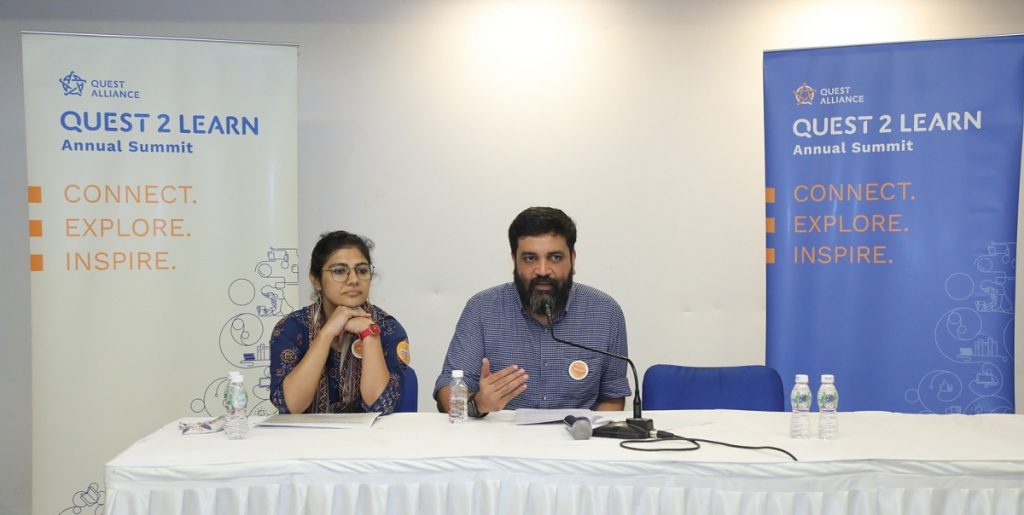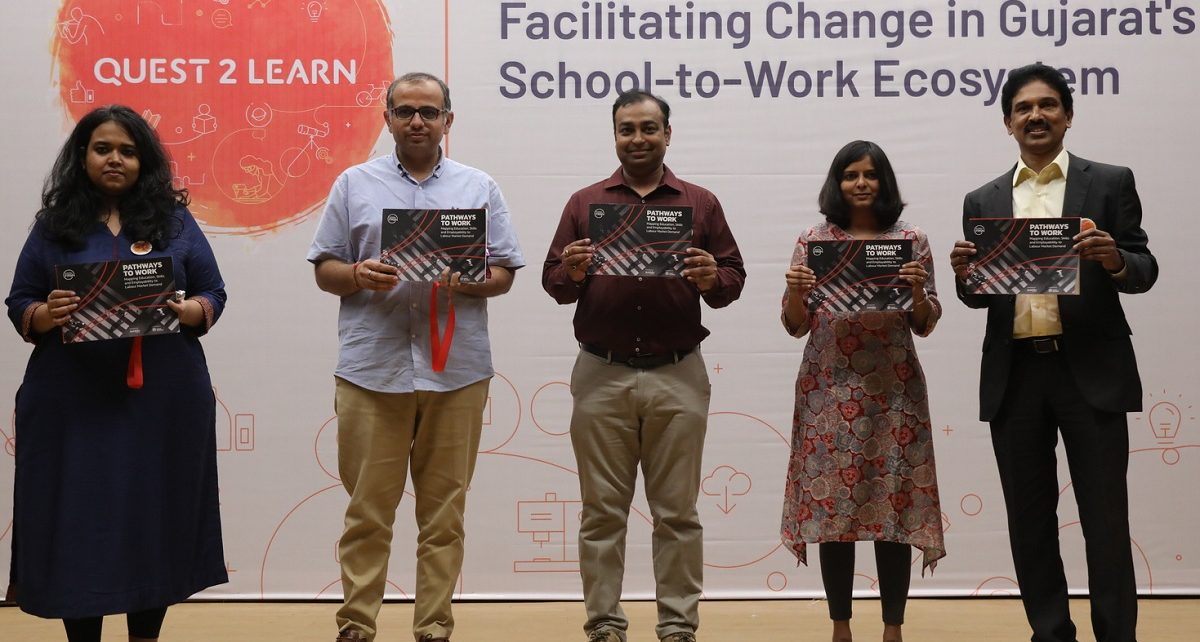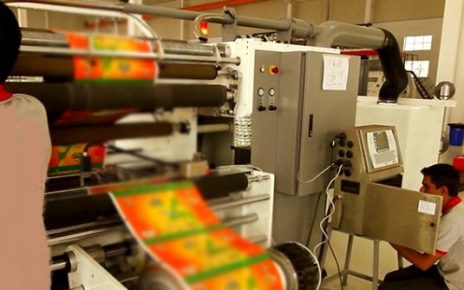· Preliminary findings of a survey by Quest Alliance mapped impact of Covid-19 second wave on students and their families
· Two reports titled ‘Pathways to Work – Mapping Education, Skills and Employability to Labour Market Demand’ and ‘Subject-choice determinants and career aspirations among secondary school students in Gujarat’ – were released during the Quest2Learn Summit organised in Ahmedabad by Quest Alliance
· Pathways to Work Report mapped the skill gap among ITI graduates which is hampering their employability
· Report on subject choice determinants identified the preferred subjects by secondary school students based on geographies and identified the factors which drove their decisions
Ahmedabad, May 06, 2022: Livelihood, education and nutrition were three parameters worst impacted by the Covid-19 pandemic. An extensive study titled, Covid Sense Check, conducted across 10 Indian states including Gujarat, by Quest Alliance, revealed that 40% of children in the state were worried about future education. The study was aimed at understanding and mapping the impact of Covid-19 second wave on students and their families and was conducted across 22,000 students studying in government schools in India including 4,184 from Gujarat, across districts.

One of the key findings revealed that 49% children in Gujarat lost at least one immediate family member during the second wave of Covid-19, against the national average of 10.4% in India. These children reported losses in livelihood as they lost an earning member, states the study.
“As a clear impact of losing an earning member, family incomes shrinked which had a detrimental impact on students’ education, family income and nutrition levels. 40% of kids including girls and boys were worried about future education due to either financial constraints or due to forced migration,” said Ms Neha Parti, Director – Schools Programme, Quest Alliance, on the sidelines of the Quest2Learn Summit organised at the Ahmedabad Management Association (AMA) on Friday – May 6, 2022.
Another stark finding of the study mentioned that 12% children reduced their intake of nutritious food in India due to loss of livelihood in their families. The number however was as high as 29% in Gujarat. “Students had reduced the consumption of dal, rice, vegetables, pulses, eggs, meat, fish protein and milk which clearly impacted their health and nutrition. In fact, according to the study around 45% of students in Gujarat faced mental health issues such as depression and anxieties, which was higher as compared to other states,” Ms Parti added.
Two more reports based on extensive qualitative and quantitative studies conducted by Quest Alliance were released during the summit – ‘Pathways to Work – Mapping Education, Skills and Employability to Labour Market Demand’ and ‘Subject-choice determinants and career aspirations among secondary school students in Gujarat’. While the report on Pathways to Work mapped the skill gap among ITI graduates which is hampering their employability, the one on Subject choice determinants mapped the preferred subjects by secondary school students based on geographies and identified the factors which drove their decisions.
A detailed perspective on each of these reports follows.
‘Pathways to Work’ Mapping Education, Skills and Employability to Labour Market Demand’
At a time when the government as well as the private sector is focussed on job creation, widening the skill gap is a major roadblock in improving employment numbers in India. This is one of the key findings of the report titled, ‘Pathways to Work’ Mapping Education, Skills and Employability to Labour Market Demand’, by Quest Alliance.
The study was supported by Future Rights Skill Network (FRSN) and conducted by Just Jobs Network (JJN) in partnership with Quest Alliance. The report provides an overview of India’s existing skills training ecosystem, delineating the challenges and the urgent need for deep reform. It highlights the need to assess labour market demand so that skills training can be better aligned to business needs.
According to secondary data cited in the study, pre-pandemic youth unemployment, at 17.3%, was three times the adult rate. Among them, unemployment was highest for those ages 15-19 (25.5%), followed by youth ages 20-24 (23.7%), and lastly, youth ages 25-29 (10.7%).
However, placement percentage in ITIs have remained stable over the years with placements in 2020 seeing a 4 percentage points increase (21.87%). However, in 2021, the placement percentage saw a slight dip recording 19.48%. (Source: Quest Alliance’s placement data from 107 ITIs)
The stable placement percentages need to be viewed in the context of a fall in Government ITI Enrollment from 74% in 2020 to 54% in a year in 2021, indicating that employment might be in fact impacted.
“Job creation is the need of the hour, but equally important is how we prepare youth to be agile in the face of a constantly changing world of work. We need to equip them with education and skills that meet industry demands for jobs that exist as well as the ones that are emerging. It is imperative for youth to gain real world experiences and identify interests to pursue a career that offers purpose and satisfaction. Education and skills must empower youth to take control of their life & career decisions,” said Mr Aakash Sethi, CEO, Quest Alliance.
Additionally, some of the employers that JJN interviewed in Gujarat also said that they had little to no interaction with ITIs. As a result, the content of skills training does not match what employers want. The inability of ITIs to keep pace with changing market conditions and adapt their curriculum accordingly is fuelling even greater misalignment between labour demand and supply.
However, things on the ground are changing after the pandemic and employers in Gujarat say they have started placing greater value on adaptability as a key skill for young people. This rapid pace of change requires skills training institutions to continuously adapt with the evolving job market.
Subject-choice preferences of Secondary School Students in Gujarat
The report on ‘Subject-choice determinants and career aspirations among secondary school students in Gujarat’, mapped the preferred subjects by secondary school students based on geographies and identified the factors which drove their decisions. The study was conducted across Kutch, Morbi, Saurashtra, Central and North Gujarat and South Gujarat.
“49% of the surveyed population wish to take up a combination of Science and Commerce. The ratio of female students was higher in social sciences (44%) and commerce (26%) whereas that of males was higher in science (37.5%),” according to the study.
One of the interesting findings of the study is that distance from place of education, grasp of the subject, managing housework and classwork and job opportunities are some of the key factors that lead students to make their subject choices. The value of each varies between streams with ability to manage housework of lesser concern or not a factor determining their choice of science.
Additionally, the study highlighted the importance of role models within the family in aiding students to negotiate with their parents on their subject choices.
“Schools can play a pivotal role in facilitating role model interactions with parents. Our work with government schools has shown that young girls benefit from such interactions and are able to develop agency to better negotiate their choices,” said Ms Neha Parti, Director – Secondary Schools Program, Quest Alliance.
About the Future Right Skills Network:
The Future Right Skills Network is a collaborative effort by Accenture, Cisco and JP Morgan, facilitated by Quest Alliance with the overarching mission to make India’s youth future- ready. The FRSN is committed to empower students and youth with the right employability skills for the future workplace. We upgrade technical and vocational training ecosystems through research and technology led interventions in learning and training models. Our strategic networking helps to build a seamless transition.
About the Q2L Summit:
The Q2L summit is a co-learning initiative instituted by Quest Alliance (QA). Organized since 2016, the summit aims to bring together diverse stakeholders to deliberate on the needs of the education and employability sectors, and celebrate interventions that have created lasting impact on the lives of young people.
About Quest Alliance:
Quest Alliance is a not-for-profit trust that equips young people with 21st century skills by enabling self-learning. We design scalable solutions that enable educators to address critical gaps for quality education and skills training. We facilitate learning networks and collaboration to bring about systemic change fuelled by research and innovation. (https://www.questalliance.net/)
For more information, please contact:
Hitakshi Joshi, Communication Associate, Quest Alliance, Gujarat
hitakshi@questalliance.net | (M) +919537300193





